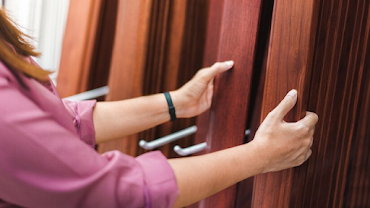Choosing the Right Steel Security Door: A Comprehensive Guide
Introduction:
Security is one of the primary concerns of any homeowner or business owner. Choosing the right steel security door is crucial to ensure the safety and protection of your property, belongings, and loved ones. This comprehensive guide aims to provide you with all the necessary information to help you make an informed decision when choosing the right steel security door for your home or business.
Factors to Consider When Choosing a Steel Security Door:
Material: The material used to manufacture the door plays a crucial role in determining its strength and durability. Steel is the most popular material used for security doors as it is strong, durable, and resistant to impact and weather conditions.
Door Design: The design of the door is another crucial factor to consider. The door should be designed to provide maximum security and should have a robust locking mechanism to prevent forced entry.
Locking Mechanism: The locking mechanism of the door should be strong and secure. The most common types of locks used in security doors are deadbolts, mortise locks, and multi-point locks. Multi-point locks are considered to be the most secure as they lock the door at multiple points.
Door Frame: The door frame should be strong and durable to support the weight of the door and withstand impact. A weak or flimsy door frame can compromise the security of the door.
Installation: The installation of the door is also critical to ensure maximum security. It is recommended to hire a professional to install the door to ensure that it is installed correctly and securely.
FAQs:
Q: What is the difference between a security door and a regular door?
A: A security door is designed to provide maximum protection against forced entry, while a regular door is designed for basic functionality such as privacy, insulation, and aesthetics.
Q: Can a steel security door rust?
A: Steel security doors are coated with rust-resistant materials such as galvanized steel or powder coating to prevent rusting.
Q: What is the difference between a deadbolt lock and a mortise lock?
A: A deadbolt lock is a single bolt that extends into the door jamb, while a mortise lock is a more complex locking mechanism that is embedded into the door itself and requires a key to operate.
Q: How long does a steel security door last?
A: A well-maintained steel security door can last up to 30 years or more.
Q: Can a steel security door be customized to fit my specific needs?
A: Yes, steel security doors can be customized to fit your specific needs, including size, design, and color.
Conclusion:
In conclusion, choosing the right steel security door requires careful consideration of several factors, such as the door's material, design, construction, and installation. The ideal security door should offer maximum protection against intruders, while also providing aesthetic appeal and energy efficiency. Some of the key features to look for in a steel security door include high-grade steel construction, multi-point locking systems, reinforced hinges and frames, tamper-resistant hardware, and weather stripping. It is also important to consider the door's size, thickness, and fire rating, as well as any additional security features such as security screens or peepholes. Ultimately, investing in a high-quality steel security door can provide peace of mind and protection for your home or business.




Comments
Post a Comment